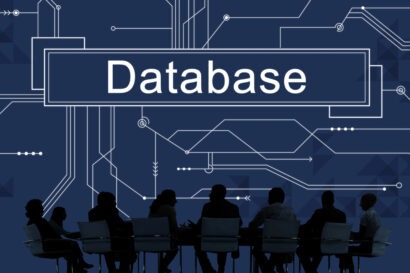The fundamental challenge in tax digitalisation lies in shifting focus away from the mere implementation of technology. Instead, a clear strategic vision is needed to define the problems and goals digitalisation aims to address whilst also holistically mapping and analysing constraints.
In September 2023, I had the privilege of attending the 2nd Network of Tax Organisations (NTO) Technical Conference in Cape Town, South Africa, to present a study on electronic fiscal devices in Rwanda. The conference’s theme – Digitalisation of tax administrations and contemporary issues – aligns well with ongoing research at ICTD and DIGITAX. Major international organisations and tax administrations took part, with African countries well represented. This blogpost summarises key insights and highlights some considerations for policymakers.
OECD and Tax Administration 3.0
The introductory session – Forum on Tax Administration – by the Organisation for Economic Co-operation and Development (OECD) set the stage for the three-day conference. It outlined Tax Administration 3.0, which envisions a paradigm shift in tax administration. This involves transitioning from a tax-centric approach to a citizen-centric one, emphasising decentralisation and recognising that legal and cultural factors require country-specific solutions. Tax administrations worldwide must change, consistent with the fast-paced new world order, characterised by evolving business models, changing work patterns, and shifting citizen expectations. Tax Admin 3.0’s mindset places citizens at the core, with seamless, ‘automatic’ taxation like Australia’s, reduced burdens, targeted data flows, greater fairness, and tax certainty. The OECD’s work on this is noteworthy, especially its assessment tools and knowledge sharing.
Insights from Africa
Several African tax administrations presented promising case studies highlighting advancements in using technology. In Benin, for instance, the focus has transitioned from deterrence to sensitising taxpayers and restoring trust in the tax administration – in line with other African countries – with technology proving vital. The new online platform, espace-contribuable, facilitates online filing and payment, making it convenient for taxpayers to comply, wherever they are. Taxpayer registration moved from manual processes to integration with the civil registry system, thus strengthening taxpayer identification. The system also automatically processes calculations. E-payment methods leveraging the proliferation of mobile money are integrated, making it easier for small taxpayers to pay their taxes. All major banks are linked with the tax administration, making payment options available through application programming interfaces (APIs, software intermediaries that enable two applications to ‘talk’ to each other) and microservices.
Liberia has also made significant strides, transitioning in 2021 to a fully integrated system encompassing e-filing, e-payment, and e-registration portals. As in Benin, the Liberia Revenue Authority collaborates with commercial banks for tax collection, linking with four major banks. A call centre provides an interactive platform to address concerns, and tax certificates are generated online. Payment can be made through mobile money, point of sale (POS) payments, online payment platforms, and debit or credit cards, all processed through internet banking, coupled with an online receipt generator. Notably, a property evaluation app and reforms to UNCTAD’s Automated System for Customs Data (ASYCUDA) have increased the property tax system’s efficiency, in line with recent research showing that investments in enforcement capacity significantly increase compliance.
Lastly, the Nigerian tax administration invested heavily in technology to address long-standing compliance issues, cumbersome processes, and lack of clarity and standards, all of which facilitated corruption. Collaborating with registration bureaus, the Federal Inland Revenue Service (FIRS) streamlined the registration process to produce a tax identification number at the time of business licence registration. Automation was also introduced for tax remittance. The TaxPro MAX system, developed in-house for a ‘fully Nigerian’ solution, simplifies several aspects of taxation, including registration, e-filing, and e-invoicing, and is continuously improved using taxpayer feedback.
Leading in a period of change – Evidence from India
The case of India’s tax administration illustrates challenges and opportunities during times of transition, and the capacity to manage change. Factors driving the reshaping of India’s tax administration included the widespread role of technology in society, the need to enhance compliance and streamline business processes, and a shift towards a taxpayer-centric model. The COVID-19 pandemic accelerated the urgency of these changes, which included the establishment of best practice, increased stakeholder consultation, the formulation of a clear vision blueprint, new laws, organisational restructuring, and overhauling business processes, while increasing capacity building and learning. Effective communication was prioritised, emphasising inter-unit communication and taxpayer education.
The audit system, now part of a faceless ecosystem, was pivotal in this transformation. A dedicated national faceless assessment centre was created to automate the audit process. Cases were randomly allocated to officers through algorithms, and audits dispersed geographically across the country’s offices. Crucially, this avoids proximity between taxpayers and auditors, curbing opportunities for collusion. Communication with taxpayers is now faceless, and taxpayers don’t know the identity of the officer responsible for their case. Taxpayers no longer have to physically visit a tax office, as video conferencing is provided for those who wish to interact with a tax officer. Pre-COVID-19, audits were conducted manually and taxpayers had in-person interactions at tax offices. A pilot project for faceless jurisdiction-free audits began in October 2019. However, the outbreak of COVID-19 in August 2020 accelerated the transition, with the faceless approach extended to all audits, first appeals, and penalty proceedings. While the audit function’s practical benefits in terms of transparency and automation are immediate, it is unclear if risk-scoring algorithms outperform traditional discretionary case-selection procedures, as recent research from Senegal discusses.
A holistic approach to digitalisation
Much is being done to digitalise tax administration, and progress is promising. However, many often-neglected challenges persist, including limited access to essential information technology (IT) tools, lack of skills and knowledge, and potential complexities introduced by digital solutions. Lower-income taxpayers often distrust technology. Solutions involve ensuring access to tools, offering training and user-friendly systems, and simplifying tax rules, as e-filing alone may not be effective if the overall tax system remains complex.
In sum, the fundamental challenge in digitalisation lies in shifting focus away from the mere implementation of technology. Instead, a clear strategic vision is needed to define the problems and goals digitalisation aims to address while mapping and analysing constraints holistically. Mobilising teams to address questions collectively is crucial. In Nigeria, for instance, a steering group within the tax administration strategised approaches to reform. Practical examples involve carefully selecting systems based on core objectives, technical functionalities, and priorities. Additionally, addressing political interference requires leaders to identify and overcome potential challenges. In some cases, digitalisation might not be important. Governments need to analyse the problem and see if digitalisation is the correct solution, or if other approaches are required. Scientific research can be crucial in testing what works in practice, and for well-informed policymaking.



